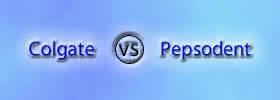Difference between Windows XP and Vista
Key difference: Windows Vista is the newer operating system by Microsoft. It is meant to be more time saving and user friendly than XP. Vista requires more hardware support than XP.

Windows XP and Vista are both operating systems by Microsoft. XP backdates Vista by about 6 years. XP was heralded as reliable and user friendly. By the time, Vista was launched, majority of the public was used to XP, and some were even hesitant to switch to Vista. Even though the number of Vista users surpassed Microsoft expectations, they did not surpass the number of XP users.
 Most people prefer XP, over Vista, claiming that is it much more user friendly and efficient that Vista. They also criticize Vista for have additional hardware requirements that XP. Microsoft included a number of additional upgrades and features in Vista (refer table), some of which users claimed impeded usage instead of enhancing it, e.g. the User Account Control (UAC). The UAC, meant to block software from silently gaining administrator privileges without the user's knowledge, has been criticized for generating prompts at every turn possible, even at basic commands such moving something in the Start Menu.
Most people prefer XP, over Vista, claiming that is it much more user friendly and efficient that Vista. They also criticize Vista for have additional hardware requirements that XP. Microsoft included a number of additional upgrades and features in Vista (refer table), some of which users claimed impeded usage instead of enhancing it, e.g. the User Account Control (UAC). The UAC, meant to block software from silently gaining administrator privileges without the user's knowledge, has been criticized for generating prompts at every turn possible, even at basic commands such moving something in the Start Menu.
All in all, Vista failed to persuade users to shift from XP, with many users even skipping Vista entirely and waiting for the next thing to come along. Please refer table for additional differences in Vista and XP requirements, features and criticisms.
|
|
Windows XP |
Windows Vista |
|
Launched in year |
2001 |
2007 |
|
Requirements |
233 MHz Processor, 64 MB of RAM, Super VGA (800 x 600) or higher resolution Video adapter and monitor, 1.5 GB or higher hard drive space, additional 661 MB for Service Pack 1 and 1a, additional 1.8 GB for Service Pack 2, and additional 900 MB for Service Pack 3, CD-ROM drive to install from CD-ROM media, Keyboard, Microsoft Mouse or a compatible pointing device, Sound card and Speakers |
800 MHz Processor, 512 MB Memory, DirectX 9.0 capable graphics card, 32 MB graphics memory, 20 GB HDD capacity, 15 GB HDD free space, DVD-ROM drive to install from DVD-ROM media |
|
Start menu |
3 column wide display |
Single list with search option |
|
Lock function |
Ctrl-Alt-Del |
lock button |
|
Features |
Reliable, user friendly, large user base, compatibility with printers, copiers, task-based Graphical user interface, drop shadows for icon labels on the desktop, task-based sidebars in Explorer windows, highlighting of recently added programs on the Start menu, ability to lock the taskbar and other toolbars to prevent accidental changes, ability to group the taskbar buttons of the windows of one application into one button, task-based sidebars in Explorer windows |
Time saving, convenience, improved security with UAC (User Account Control), includes Direct X 10 for better game graphics, enhanced desktop with 3D technology, quicker booting and shutdown, Internet Explorer 7, streamlined Windows Update, updated Windows Media Player, updated Windows Photo Gallery, updated DVD Maker application, new games, tuned-up parental controls, improved backup program, enhanced System Restore, peer-to-peer collaboration, Quick setup, updated graphical user interface and visual style |
|
Criticism |
Issues with security, performance and the presence of product activation, vulnerabilities due to buffer overflows, susceptibility to malware, trouble running MS-DOS programs |
High system requirements, restrictive licensing terms, new digital rights management technologies, restriction of copying of protected digital media, lack of compatibility with some pre-Vista hardware and software, number of authorization prompts for User Account Control |
Image Courtesy: onhax.wordpress.com, gdgt.com









Add new comment